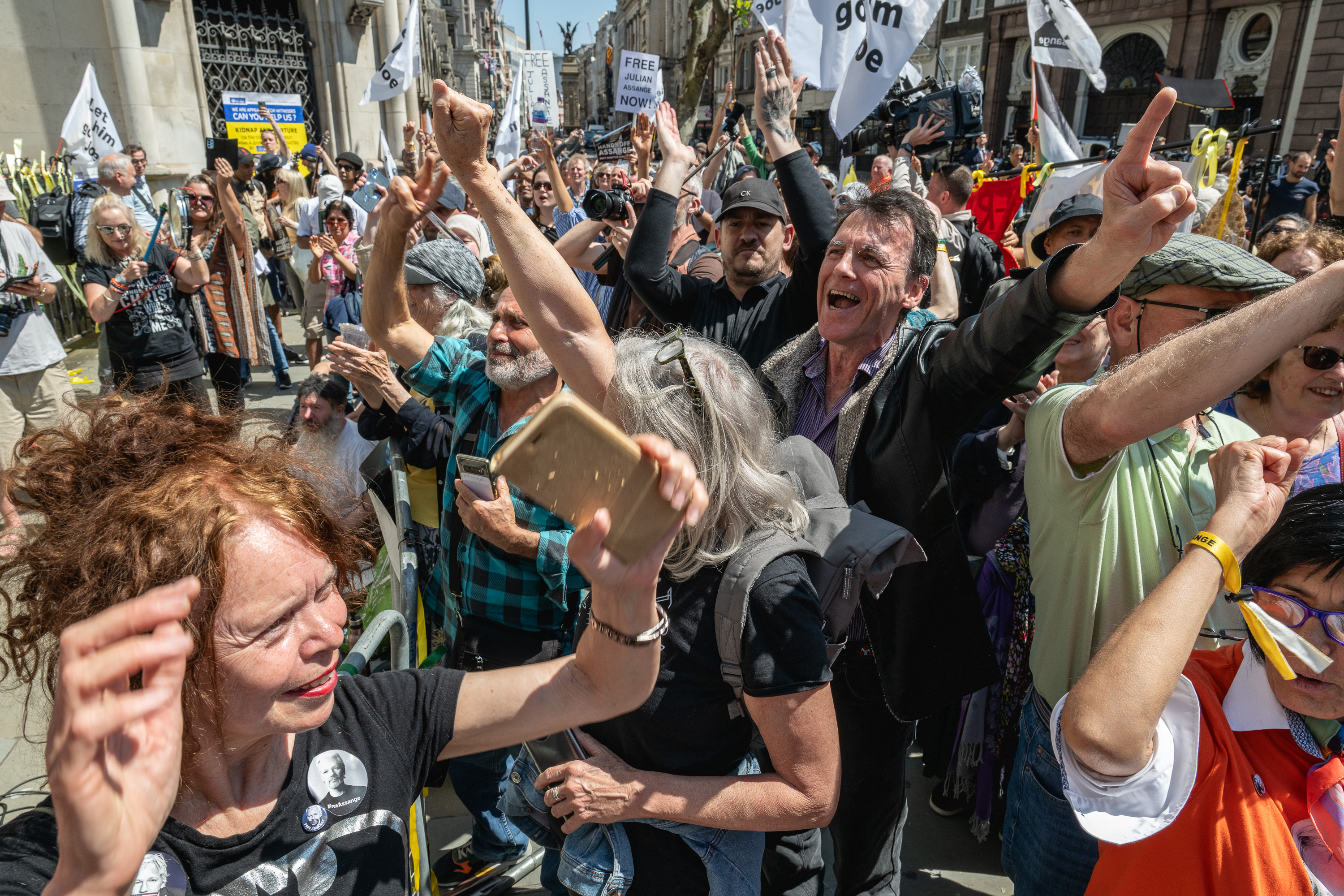High Court finds US assurances insufficient and grants permission to appeal against extradition

High Court finds US assurances insufficient and grants permission to appeal against extradition
The High Court decided on Monday to grant WikiLeaks Publisher Julian Assange permission to appeal against his potential extradition to the United States, where he faces an unprecedented set of charges related to WikiLeaks’ publications between 2010 and 2012.
In March, the High Court had ruled that Assange would have been granted leave to appeal only if the United States were unable to provide the court with valid assurances on two separate issues: that there was no risk of the death penalty being sought in his case; and that he would be able to rely on the First Amendment as a legal defence without being discriminated against on the basis of his nationality.
Julian Assange did not appear during today’s hearing for health reasons. Edward Fitzgerald KC, for Assange, stated in front of the judges, Victoria Sharp and Jeremy Johnson, that the assurance provided by the US Government on the death penalty was accepted by his client, since it is unambiguous and would be binding for the US courts. The discussion then turned to the second assurance. “It does not promise that the applicant can rely on the First amendment, it merely saysthat he can raise and seek to rely on it,” Fitzgerald said.
Fitzgerald argued that a critical absence in the language of the assurance was any obligation on the prosecution not to argue that First Amendment rights should not apply. This was particularly important since the suggestion had originally come from the affidavit of a senior prosecutor for the Eastern District of Virginia, Gordon Kromberg. Furthermore, even if the assurance had contained this language, it was a settled constitutional point in the US that no assurance could bind a federal court.
Mark Summers KC, also for Assange, noted that, given the language of the UK Extradition Act, US prosecutors could argue that its non-discriminations provisions did not apply given that “nationality as a concept is somehow narrower than citizenship.” Summers stated that such argument is “plain wrong when one looks at the Refugee Convention… British citizenship is one of many forms of being a national and one can’t be a citizen without being a national.”
James Lewis KC then rose on behalf of the US Government. He said the law, including European Convention on Human Rights, only protects “responsible journalism.” The US Government held that Assange may not be entitled to First Amendment protections, but this was on the basis of the manner of his publications, rather than his nationality: “no-one, neither US Citizens nor foreign citizens, are entitled to rely on the First Amendment in relation to publication of illegally obtained national defence information giving the names of innocent sources to their grave and imminent risk of harm.”
Mark Summers responded to the US assertion that citizenship is just one of the factors involved in deciding whether First Amendment rights apply. “The fact remains, and the US accepts it, that non-US citizenship is one of three relevant factors. And it is an important factor in this case.”
Ben Watson, representing the UK Home Secretary, who is also a respondent in this appeal, asked the judges to dismiss the appeal in relation to the role of the then Home Secretary in authorising Julian’s extradition.
The ruling came at the end of the hearing. The judges said the US submissions on non-discrimination were not sufficient and granted the WikiLeaks publisher permission to appeal in relation to the points on freedom of speech and nationality. A full appeal hearing will follow. The parties have been given time until May 24 to submit a proposed outline for how the hearing will proceed.